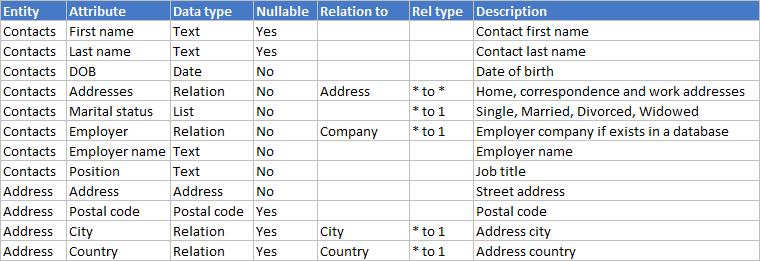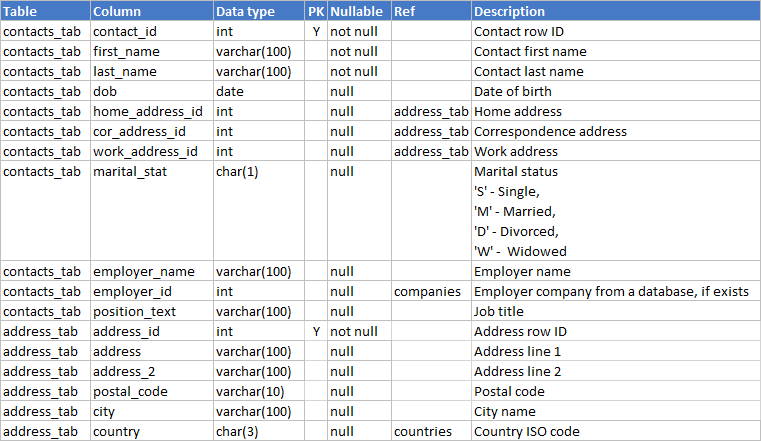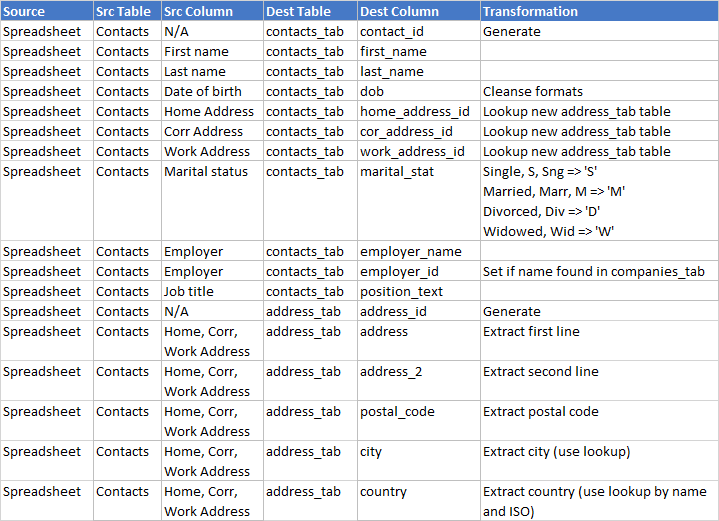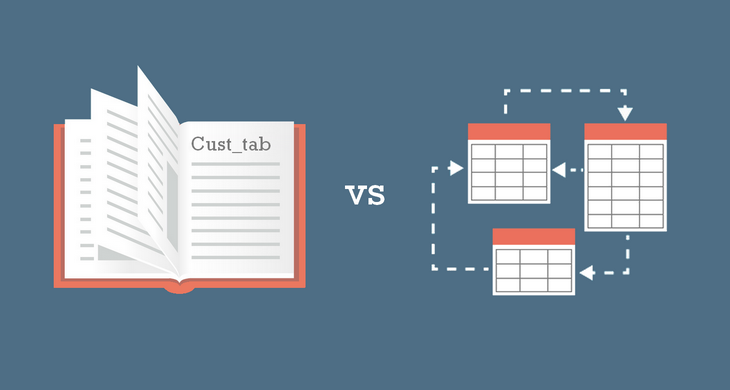Data Dictionary (a description of all data elements - entities/tables and attributes/columns) is data modeling or documentation artifact that can be created in various scenarios and can have different functions. Let's have a look at a few examples of those functions.
1. Gathering Requirements
You might use this when you gather requirements for a new application or database. You just set up an Excel spreadsheet and ask business people what data they would like to collect. It might look like this for a CRM system.

2. Data Modeling
Later in the process of the implementation of the CRM data modeler or architect takes those requirements and tries to make a valid data model out of it. Along the UML Class diagram or ER diagrams, more detailed definition of fields should be created. It may look like this:

3. Physical Database Design
When logical mode is created, database developer or DBA needs to translate entities into database tables. This would serve as a documentation of a database and might look like this:

4. Data Mapping
Once the CRM database has been designed, data mapping for data migration needs to be prepared as a joint exercise by the business and IT. It might look like this:

Conclusion
As you have now seen, Data Dictionary may have different functions, serving different people in different phases of data lifecycles. Finally, it has a very different format and I hope to show you more formats and applications on this blog in the future. Make sure to subscribe.
Learn more
- Logical vs Physical Data Dictionary
- Why Is Metadata Important for Databases
- ER Diagram vs Data Dictionary - Which is Better for Documenting Data Models
or











 Piotr Kononow
Piotr Kononow



